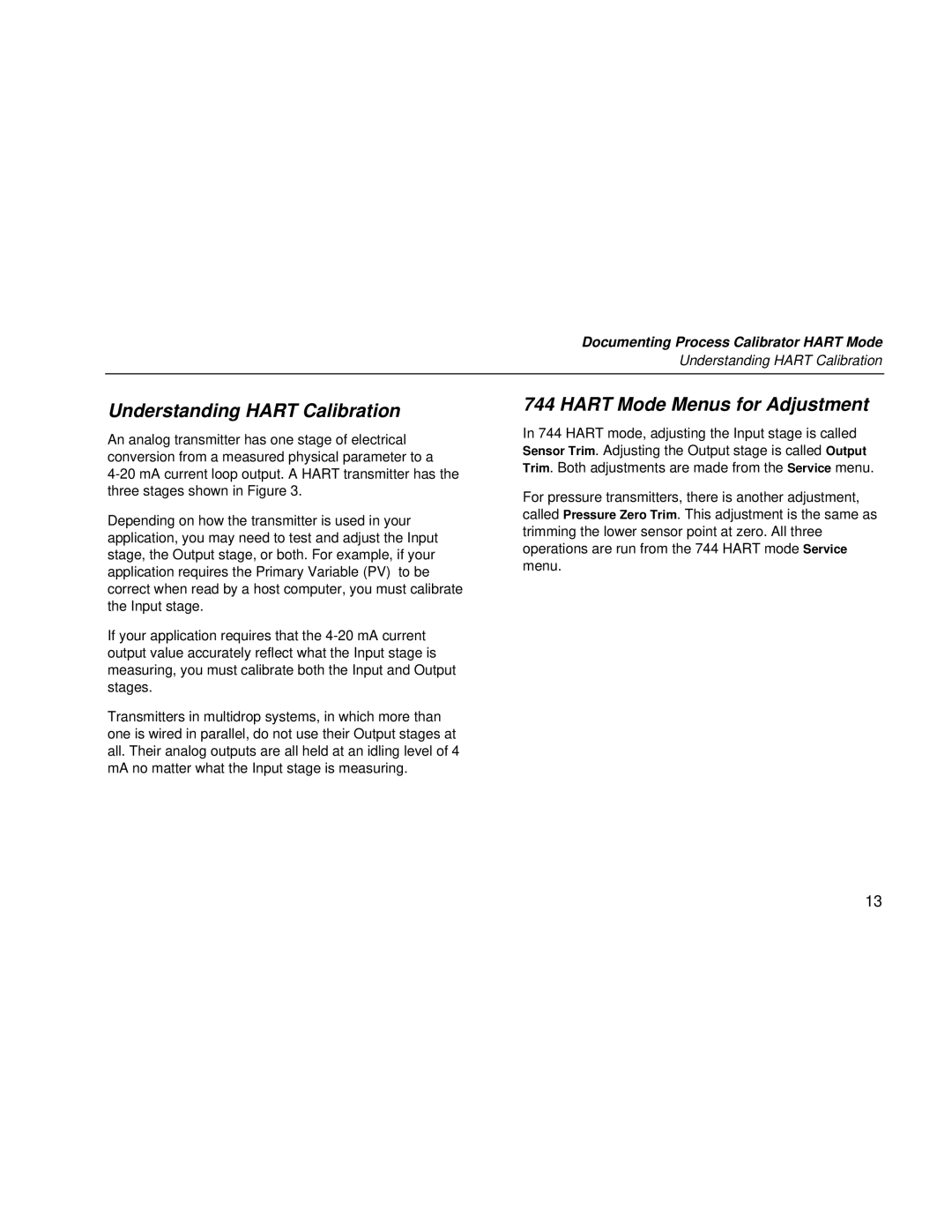Documenting Process Calibrator HART Mode
Understanding HART Calibration
Understanding HART Calibration
An analog transmitter has one stage of electrical conversion from a measured physical parameter to a
Depending on how the transmitter is used in your application, you may need to test and adjust the Input stage, the Output stage, or both. For example, if your application requires the Primary Variable (PV) to be correct when read by a host computer, you must calibrate the Input stage.
If your application requires that the
Transmitters in multidrop systems, in which more than one is wired in parallel, do not use their Output stages at all. Their analog outputs are all held at an idling level of 4 mA no matter what the Input stage is measuring.
744 HART Mode Menus for Adjustment
In 744 HART mode, adjusting the Input stage is called Sensor Trim. Adjusting the Output stage is called Output Trim. Both adjustments are made from the Service menu.
For pressure transmitters, there is another adjustment, called Pressure Zero Trim. This adjustment is the same as trimming the lower sensor point at zero. All three operations are run from the 744 HART mode Service menu.
13
